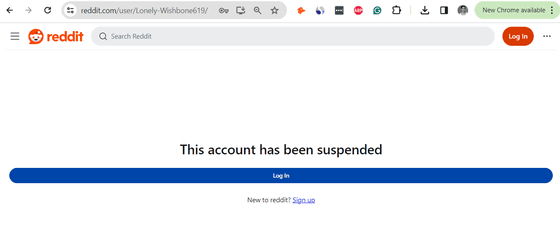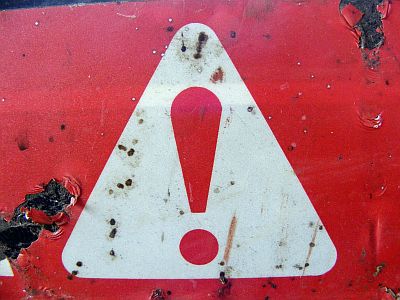What is the reason why review articles of famous magazines that appear high in Google searches may be unreliable?

Before purchasing a particular product, many people search on Google and refer to various review sites to find out its ratings. Review site HouseFresh complains that ``The reliability of reviews appearing in Google search results is decreasing due to famous magazines and famous media.''
How Google is killing independent sites like ours - HouseFresh
In April 2021, Google announced a product review update to ``increase the rating of content that features reviews based on one's own experiences and original research results.''
What creators need to know about the April 2021 Google Product Reviews update | Google Search Central Blog | Google for Developers
https://developers.google.com/search/blog/2021/04/product-reviews-update
Previously, when you searched Google to find out the reviews for a particular product, a large amount of information about that product would appear in the search results, and you would have to search through them to find product reviews. In particular, there were many pages on the sites of major publishers promoting their products, and it was often impossible to find reviews of people actually using the products. However, with the product review update announced in 2021, various review sites and articles that summarize their evaluations after actually using the product are now more likely to be displayed at the top of search results.
Lily Ray , a search engine optimization (SEO) expert, said, ``Many publisher sites have continued to experience losses for two years starting in 2021. New monetization strategies such as product reviews have emerged, and Google traffic has increased. 'Then, there was a boom in review updates, and Google traffic continues to decline.' Also, when Mr. Ray talked to a client publisher about product reviews, the answer was, ``That's literally impossible for us.''
The past 2 years have been lose/lose for so many publisher sites.
— Lily Ray ???? is on vacation ???????? (@lilyraynyc) July 24, 2023
Decaying Google traffic = branching out into new monetization strategies, like product reviews
Then boom - the Reviews updates come along and take away that traffic too.
HouseFresh says, 'Soon after the product review update was announced, it benefited sites and writers who actually spend the time, effort, and money to test products before recommending them.'
According to HouseFresh, users don't suddenly search for a specific product; in fact, they often search for a product that catches their eye from a recommended list. For example, a user who thinks, ``I want an air purifier that can remove pet hair,'' first searches for air purifiers on Google, and then lands on a page like ``Summary of recommended air purifiers,'' which lists the air purifiers listed there. Search for the products that have been uploaded on Google again. The product review update should have allowed independent review sites like HouseFresh to appear higher in search results. However, in recent years, traffic from these routes seems to be decreasing.
HouseFresh claims that through SEO, popular magazines and media outlets create pages that recommend products as if they have reviewed them, even though they have not actually tested the products.
It is said that manual checks are conducted to confirm whether a site is eligible for product review updates. However, in order to evade these manual checks, the site in question posts a summary of its ``rigorous testing process'', ``review team'', ``subject matter experts'', and ``review methods'' on its pages. thing. However, the photos posted are of ``a person holding a tape measure,'' ``a product with a large number of post-it notes pasted on it,'' and ``a person holding a clipboard that evokes a scientific image.'' There seem to be very few reviews.
For example, when searching for 'air purifier for pets' in English, the top 10 results are listed below. Most of these articles are published by famous magazines and media outlets.

'Better Homes & Gardens' at the top is a site of a magazine about gardening and crafts that is famous in America. Although the relevant page states that ``67 air purifiers were tested in a laboratory in Iowa'' and ``Kenneth Mendez was invited as an expert,'' there are no product reviews. , test data is not publicly available. It also states that all the photos used were taken by a person named ``Henry Wartock.''

According to HouseFresh, Better Homes & Gardens had never published an article regarding air purifier reviews until the product review update was announced, and just before the product review update was announced on July 3rd, an article titled ``
Furthermore, an air purifier introduced by Better Homes & Gardens as ``recommended for small rooms'' was the subject of a class action lawsuit for false advertising, and was severely criticized on review sites Wirecutter and Consumer Reports . When HouseFresh actually tested the air purifier in question, they found that it took three times as long to remove smoke from the test room compared to a product in one-third the price range, and that it was incredibly noisy. It was loud and produced 88 db of noise at maximum speed.'' ``It costs $99.99 (about 15,000 yen) to replace the filter every 6 months.'' ``It consumes 61W of power at maximum speed.'' It seems that a problem has been found.
The air purifier in question was also recommended on other sites that were displayed at the top of the search results. Furthermore, it seems that many similarities were found, such as the use of a photograph taken by a person named Henry Wartock and the publication of a statement that Kenneth Mendez was invited as an expert.
Furthermore, looking at the photo taken by Henry Wartock, it seems that the same person was using the product in the same place, even though it was a completely different site.

It turns out that BuzzFeed, which was listed at the top of the search results, not only recommended an air purifier that had been criticized badly, but also quoted reviews from Amazon.

In addition, there was a post on Reddit, an online bulletin board site, asking, ``What is the best air purifier for pets? Is Dyson the best?'', but a BuzzFeed article has been published. There were a lot of comments immediately after it was posted.

It seems that this comment also contained a link to a site that copied the wording written on the fake review page that appears in search results.

In addition, when I clicked on

HouseFresh points out that famous magazines such as ``Better Homes & Gardens'' and ``Popular Science'' that recommend the air purifiers in question are all parented by the same investment company. has suggested that it may have an affiliate marketing agreement with a digital media company affiliated with an investment company.
Google calls the four elements 'EEAT': experience, expertise, authoritativeness, and trustworthiness, and uses them as the basis for evaluating content. However, the problem with fake review pages like the one above is that they are sponsored by well-known magazines and media brands, so they are rated higher than independent review sites like HouseFresh. HouseFresh argues that investment firms and digital media companies are simply leveraging the magazine's long-established brand to promote specific products.
HouseFresh says, ``I think the product review system should prevent people from ending up with ``thin content that just summarizes a large number of products and services.''There's no reason why Google will forever be the goalkeeper.'' 'But now Google is the goalkeeper. The ball is in the court of major media sites.'
Related Posts:
in Web Service, Posted by log1i_yk







